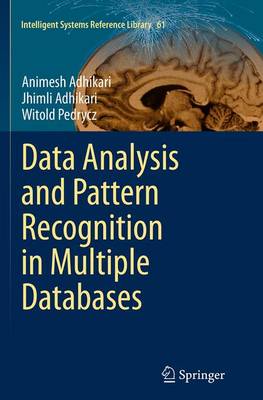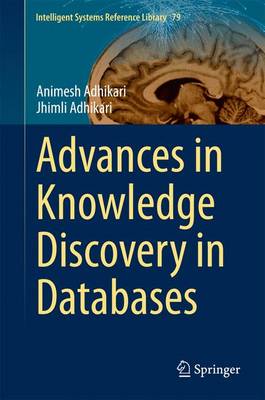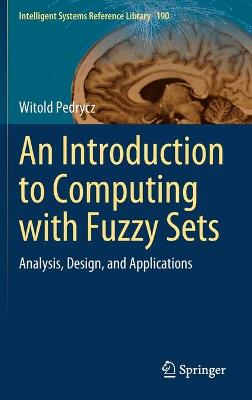Intelligent Systems Reference Library
3 primary works
Book 61
Data Analysis and Pattern Recognition in Multiple Databases
by Animesh Adhikari, Jhimli Adhikari, and Witold Pedrycz
Pattern recognition in data is a well known classical problem that falls under the ambit of data analysis. As we need to handle different data, the nature of patterns, their recognition and the types of data analyses are bound to change. Since the number of data collection channels increases in the recent time and becomes more diversified, many real-world data mining tasks can easily acquire multiple databases from various sources. In these cases, data mining becomes more challenging for several essential reasons. We may encounter sensitive data originating from different sources - those cannot be amalgamated. Even if we are allowed to place different data together, we are certainly not able to analyze them when local identities of patterns are required to be retained. Thus, pattern recognition in multiple databases gives rise to a suite of new, challenging problems different from those encountered before. Association rule mining, global pattern discovery and mining patterns of select items provide different patterns discovery techniques in multiple data sources. Some interesting item-based data analyses are also covered in this book. Interesting patterns, such as exceptional patterns, icebergs and periodic patterns have been recently reported. The book presents a thorough influence analysis between items in time-stamped databases. The recent research on mining multiple related databases is covered while some previous contributions to the area are highlighted and contrasted with the most recent developments.
Book 79
Advances in Knowledge Discovery in Databases
by Animesh Adhikari and Jhimli Adhikari
This book presents recent advances in Knowledge discovery in databases (KDD) with a focus on the areas of market basket database, time-stamped databases and multiple related databases. Various interesting and intelligent algorithms are reported on data mining tasks. A large number of association measures are presented, which play significant roles in decision support applications. This book presents, discusses and contrasts new developments in mining time-stamped data, time-based data analyses, the identification of temporal patterns, the mining of multiple related databases, as well as local patterns analysis.
Book 190
This book provides concise yet thorough coverage of the fundamentals and technology of fuzzy sets. Readers will find a lucid and systematic introduction to the essential concepts of fuzzy set-based information granules, their processing and detailed algorithms. Timely topics and recent advances in fuzzy modeling and its principles, neurocomputing, fuzzy set estimation, granulation-degranulation, and fuzzy sets of higher type and order are discussed. In turn, a wealth of examples, case studies, problems and motivating arguments, spread throughout the text and linked with various areas of artificial intelligence, will help readers acquire a solid working knowledge. Given the book's well-balanced combination of the theory and applied facets of fuzzy sets, it will appeal to a broad readership in both academe and industry. It is also ideally suited as a textbook for graduate and undergraduate students in science, engineering, and operations research.


